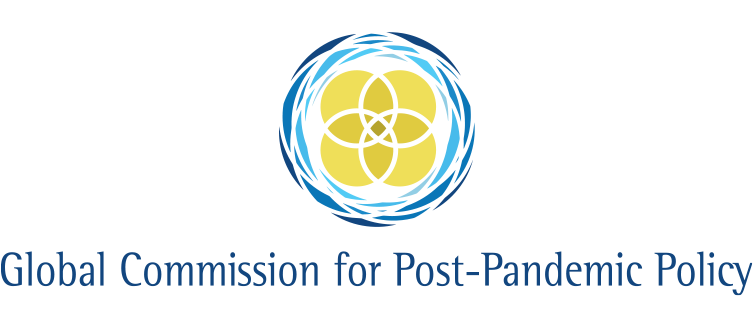The Pandemic, week to Dec 8th
Health
Newly diagnosed cases of COVID-19 continue to rise globally. According to the World Health Organisation there were approximately 4 million new cases in the week to December 8th. Fortunately, after the steepest escalation in case rates through October and early-November since the pandemic began, daily case rates––though still marginally increasing––have stabilised in recent weeks.
Unfortunately, as a lagging indicator, weekly deaths also continue to rise globally––still tracking the previous case-rate trend—with 73,000 deaths in the week to December 8th. The total number of deaths is more than 1.5 million globally.
In Europe, lockdown restrictions enforced in late-October and early-November have borne fruit, with clear declines in daily case rates in France, Italy, the United Kingdom, Poland and Spain. Nevertheless, case rates per capita remain high. The situation is worst in eastern Europe. The Balkan and Baltic states are a particular concern. There has also been a dramatic increase in infections in Turkey.
In the United States, after a brief decline in new infections, daily case rates have begun rising steeply once again and new daily death records above 2,500 have been set. This is being driven by high rates of infection in much of the American Mid- and Southwest and steep increases in caseloads in California, Texas and New York State.
On a per capita basis, Latin America’s caseload remains moderately high––especially in Brazil where cases are increasing––but is largely stable. In the Middle East, Africa, Asia and Oceania, caseloads remain low and stable. Notable exceptions include Jordan, Iran and Kazakhstan. In the last week the latter has seen an especially dramatic spike in new infections.
The United Kingdom became the first country to approve a COVID-19 vaccine tested in a large clinical trial and began vaccinations on December 8th. The British Medicines and Healthcare products Regulatory Agency (MHRA) granted emergency-use authorisation to a vaccine developed by the pharmaceutical giant Pfizer and partner BioNTech. In a completed Phase III trial, the vaccine had an efficacy of over 94% and resulted in no serious safety concerns. In China and Russia, vaccines have already been approved but without the completion of the final rounds of trials in people.
The biotechnology company Moderna applied for emergency approval of its COVID-19 vaccine candidate from the American Food and Drug Administration (FDA), following a similar application by Pfizer-BioNTech. On the same day, both companies also applied for conditional approval from the European Medicines Agency (EMA). The FDA’s vaccine advisory committee will meet to review the Pfizer-BioNTech and Moderna applications on December 10th and 17th, respectively. Both vaccines are expected to be approved.
Economy
The United States Federal Reserve published its final Beige Book report of the year. The survey of anecdotes from businesses, market experts and economists paints a picture of a slowing economic recovery. The majority of the twelve Federal Reserve Districts described only modest or moderate economic expansion over the last six weeks, with four districts describing little or no growth at all.
The American Bureau of Labour Statistics released its November jobs report. The United States economy added around 245,000 jobs in November––by far the lowest monthly total since the start of the jobs recovery began in May. That number brings the unemployment rate down marginally from 6.9% in October to 6.7%––after a drop from 7.9% in September—assisted however by a decline in the labour force participation rate.
The OECD published its biannual Economic Outlook Report. The report, which was markedly more optimistic than the June edition, predicts that global GDP will return to pre-pandemic levels by the end of 2021. China––which started its economic recovery earlier––is projected to grow strongly, accounting for over one-third of world economic growth in 2021. The report recommends that governments continue to use their policy instruments actively and emphasises that heightened policy activism need not be a concern if deployed to deliver fairer and higher economic growth.
The impact on much of the developing world of multiple waves of infection has been dire. A new study published by the International Food Policy Research Institute tells the story of how a second wave of COVID-19 in Myanmar precipitated a dramatic increase in poverty in the country.
Politics
In the United States, president-elect Joe Biden announced key cabinet picks in the battle against the pandemic. Former Federal Reserve Chair Janet Yellen was nominated for Treasury Secretary and Vivek Murthy will reportedly reprise his Obama-era role as Surgeon General. President-elect Biden also confirmed that he had asked Dr Antony Fauci to remain in his role as director of the National Institute of Allergy and Infectious Diseases as well as acting as a White House adviser.
In Europe, Poland and Hungary continue to block the European Union’s landmark €1.8 trillion budget-and-recovery package. At issue is the so-called “Rule of Law Mechanism,” which requires that member states must uphold democratic standards to access the EU’s billion-euro emergency coronavirus relief package and budget. European Commission President Ursula von der Leyen is reported to be weighing options to launch the EU’s proposed €750 billion recovery fund without Hungary and Poland. This will be a central issue at the last scheduled European Council meeting of the year, on December 10th-11th.
In Ethiopia, the ongoing military conflict in the province of Tigray has caused thousands of civilians to flee for safety across Ethiopia’s borders. In eastern Sudan, over 40,000 refugees have been placed in three temporary camps in the cities of Qadarif and Kassala. However, with a second wave of COVID-19 sweeping the country––which reports at least 17,000 registered cases and a high mortality rate––there is concern about a raging outbreak in the crowded camps.
GCPPP Newsletter
We now publish a weekly newsletter to inform friends and supporters of the Global Commission’s progress and to provide updates when new content is published. Please sign up here:




 Fateme Alaie, Unsplash
Fateme Alaie, Unsplash




